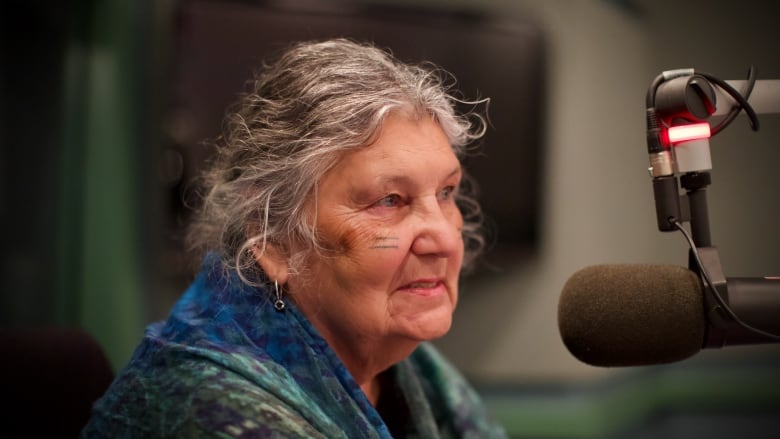Maria Campbell on the pain and relief of re-releasing Halfbreed with uncut account of RCMP rapePosted in Articles, Audio, Canada, Interviews, Media Archive, Native Americans/First Nation, Women on 2020-06-25 17:56Z by Steven |
Maria Campbell on the pain and relief of re-releasing Halfbreed with uncut account of RCMP rape
As It Happens
CBC Radio
2019-11-29
 Métis author and playwright Maria Campbell has re-released her seminal 1973 memoir Halfbreed with previously censored pages intact. (Sheena Goodyear/CBC ) |
Métis author says the published version of her 1973 memoir ‘didn’t tell the complete story’
Nearly five decades after Maria Campbell first published her seminal memoir Halfbreed, she says she finally feels like it’s finished.
That’s because the first version of the book was incomplete. Two integral pages detailing her account of being raped by a Mountie when she was 14 years old had been excised.
Those long-lost pages were discovered last year in an unpublished manuscript, and now the memoir has been re-released intact for the first time.
“I feel like it’s finished now, because it never felt finished for me,” Campbell said. “I always felt like there was a part of it that was missing, and that it didn’t tell the complete story.”
The Métis author, broadcaster and filmmaker joined As It Happens host Carol Off in studio to discuss Halfbreed’s legacy and continued relevance today…
Listen to the story (00:27:32) here. Read the transcript here.




